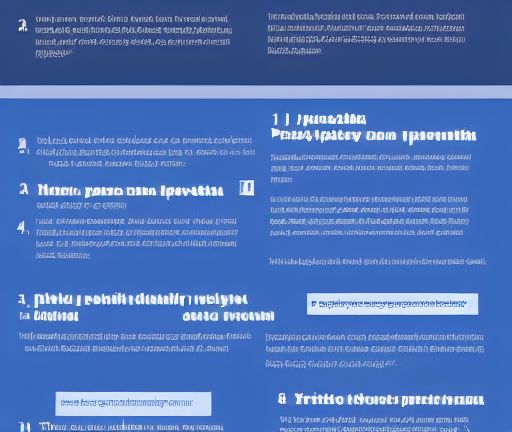如何保护隐私英语作文
2023-12-28 06:35
作者:muzixin

Privacy is a fundamental right that every individual should be entitled to. With the advent of technology and the widespread use of the internet, protecting one's privacy has become increasingly challenging. In this essay, I will discuss various measures that can be taken to safeguard privacy in the digital age.
Firstly, it is essential to be cautious about the personal information that we share online. Many social media platforms and websites require users to enter personal details, such as name, date of birth, and address. However, it is crucial to only provide necessary information and avoid disclosing sensitive data. Additionally, we should be mindful of the privacy settings on our social media accounts and limit the visibility of our posts and personal information to a select group of trusted individuals.
Another important step in protecting privacy is to use strong and unique passwords for all our online accounts. Weak passwords or reusing the same password for multiple accounts can make them vulnerable to hacking. A strong password should be a combination of letters, numbers, and special characters, and it should not be easily guessable. Furthermore, enabling two-factor authentication (2FA) adds an extra layer of security to our accounts.
Furthermore, it is crucial to be aware of the privacy policies of the websites and applications we use. By reading and understanding these policies, we can make informed decisions about the platforms we trust with our personal data. Being cautious about the permissions we give to apps and regularly reviewing and updating our privacy settings can also help protect our privacy.
In addition to taking measures on an individual level, there is a need for robust legislation to protect privacy. Governments around the world should enact comprehensive privacy laws that ensure the responsible handling of personal data by organizations. These laws should include strict regulations on data collection, storage, and processing, as well as penalties for non-compliance. Furthermore, individuals should have the right to access, edit, or delete their personal information from databases held by organizations.
Education and awareness are key in protecting privacy. It is essential to educate individuals, especially children and teenagers, about the potential risks associated with sharing personal information online. Schools should incorporate lessons on online safety and privacy into their curriculum to help students understand the importance of protecting their personal data. Moreover, public awareness campaigns can be undertaken to highlight the potential consequences of privacy breaches and promote safe online practices.
Lastly, technological solutions can also aid in protecting privacy. Encrypted messaging apps, such as Signal and Telegram, provide secure communication channels by encrypting messages and preventing unauthorized access. Virtual private networks (VPNs) can be used to establish a secure connection when browsing the internet and protect against data interception. Privacy-focused browsers, such as Brave and DuckDuckGo, offer enhanced privacy features by blocking trackers and preventing data collection.
In conclusion, protecting privacy in the digital age requires a multifaceted approach. It involves individual actions, such as being cautious about sharing personal information and using strong passwords, as well as comprehensive legislation, education, and technological solutions. By implementing these measures, we can ensure that our personal information remains secure and safeguard our privacy in an increasingly digitized world.






